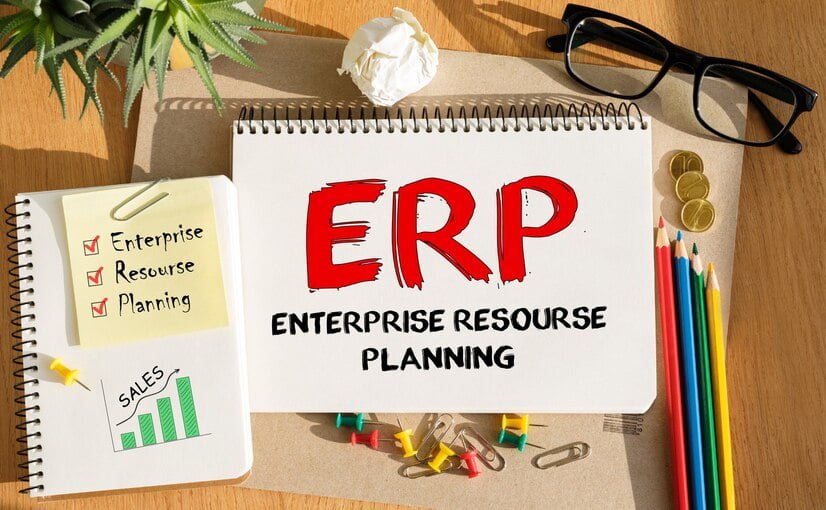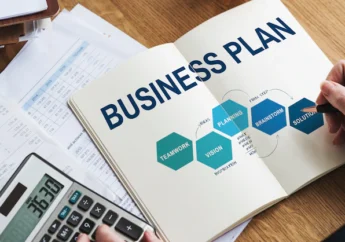How ERP Systems Help Businesses to Scale
by Sumona Business Published on: 05 May 2022 Last Updated on: 13 January 2024

Let’s agree that businesses of every scale need a method of organization in order to be effective and profitable. Scaling companies often reach a point where spreadsheets can no longer cut it.
That’s where the ERP (Enterprise Resource Planner) solutions come to the rescue. ERP systems specialize in collecting and organizing essential business information for streamlined operations and production.
Most business professionals are already familiar with the concept of ERP systems. If you’re not, you may find the consulting services available on a site like https://sytecg.com/ useful to get you up to speed. However, you may feel familiar with the concept, but still fall foul of the common misconception that these solutions are only for large-scale organizations.
Well, the truth is small-scale organizations have a faster and sharper competition than the established ones.
ERP systems allow small businesses to act, manage and operate like an enterprise-scale business, ensuring that they always meet the needs of their customers.
Not to forget that ERP systems can be tailored to any size of the business if you partner with reliable ERP software development services. Therefore, If you are looking for a cost-effective solution to manage your expanding business, this article is just for you.
You are going to explore the whereabouts of business ERP solutions and how to scale your business using these solutions. Let’s start with the basics, shall we?
What is An ERP system?

At its core, Enterprise Resource Planner (ERP) is a system known for automating business processes and providing internal controls and insights. Apart from this, ERPs also draw on a central database to collect input from departments like manufacturing, production, supply chain, human resource, sales, etc.
Once the compilation of information is done on the central database, you can gain cross-departmental visibility and analyze various scenarios. Not only this, ERP application development solutions help you discover process improvements that translate to cost savings and better productivity.
How Do ERP Solutions Work?

Before anything, you need to know that ERP is not a standalone application. ERP is a category of different business software that caters to specific business requirements. As mentioned above, the ERP systems run on modules that pull and push information to the central database.
For instance, product-based businesses generally have modules for accounting, CRM (Customer Relationship Management) systems, inventory and order management, etc.
On the other hand, service-based businesses may turn their ERP modules to project management, accounting, professional services, etc.
Why are ERP systems important for your business?

The primary goal of a business is to utilize its resources wisely, which is also the primary benefit of using ERP systems. You can reallocate financial and human capital and create an efficient process without sacrificing performance or quality.
Enterprise Resource Planning systems are also an asset when it comes to coordination and planning. While scaling your business, you can improve communication and guide your own decisions.
ERP systems are a comprehensive source of data which means you will always have a host of reports and analytics. This is a difference-maker factor in all growing businesses.
Last but not least, turning sensitive and useful information into graphs to illustrate market trends and business models is the topmost need of an organization. This is a job best done by ERP systems and tools.
Now that we know how vital ERP systems can be for organizations of every scale and size, let’s move forward to our final discussion. When you approach an experienced mobile app development company, the experts will familiarize you with ERP system development.
What you need to know after you get your tailored ERP solution is “how can you scale your business using an ERP system”?
Five ways to scale your business using ERP systems

Modern ERP solutions are specialized to solve any management concern using growth tools and technology advances. Let’s see how you can use these solutions to scale your business.
1. Global Capabilities
One way of scaling the business is expanding globally. You can grow your international presence through ERP systems. How?
You need a system that supports multiple languages and complies with tax codes and local laws.
For instance, An ERP system with specific localizations for various countries can store vast strokes of information, including complex business regulations.
When localization in the country changes, the ERP system can update the current regulation, and you can follow the protocols accordingly. This will prevent any client business disruptions, which is an important aspect of business expansion.
2. Cloud Computing
We all know how cloud computing has revolutionized the way businesses operate. Over 58% of the organizations run on the cloud, and ERP systems are no exception.
Cloud computing helps businesses scale with ERP because the system never goes out of date. Cloud capabilities give your business more flexibility and functionality. Besides, the SaaS solutions are managed by the providers, so you never have to worry about updates.
3. Adaptable Modules
As we discussed above, ERP systems come in various levels of services to meet the current needs of the business. This means you can easily upgrade or add different modules to your ERP system as your business data expands.
This helps your business scale since you can stick with a familiar system while you grow and add functionalities. This doesn’t disrupt the ongoing business process, and you don’t have to go all-in with different solutions.
4. AI, IoT, and Mobile Capabilities
Modern ERP systems are interconnected in nature since they allow consistent real-time data flow from database to applications. State-of-the-art technologies such as AI and IoT are capable of deciphering trends and patterns, which is crucial to a scaling business. Since every service is customer-centric, you need a modern and integrated ERP solution to stay ahead of the competition.
5. Integrations
ERP systems allow you to integrate with third-party services while keeping data consistency and transparency onboard. If you are willing to integrate multiple services into your ERP systems, it is suggested to seek services from top custom software development companies where you get professional guidance at every stage.
Multiple technology solutions that don’t interact with each other lead to data silos. ERP systems reduce the risk further by solving plenty of data siloing.
Conclusion
An ERP system is an excellent investment for a business that eases the transition and makes sure everything runs smoothly. If you are considering the best ERP system for your organization, you can approach reliable ERP software development services and kickstart the development.
Read Also:







































































































